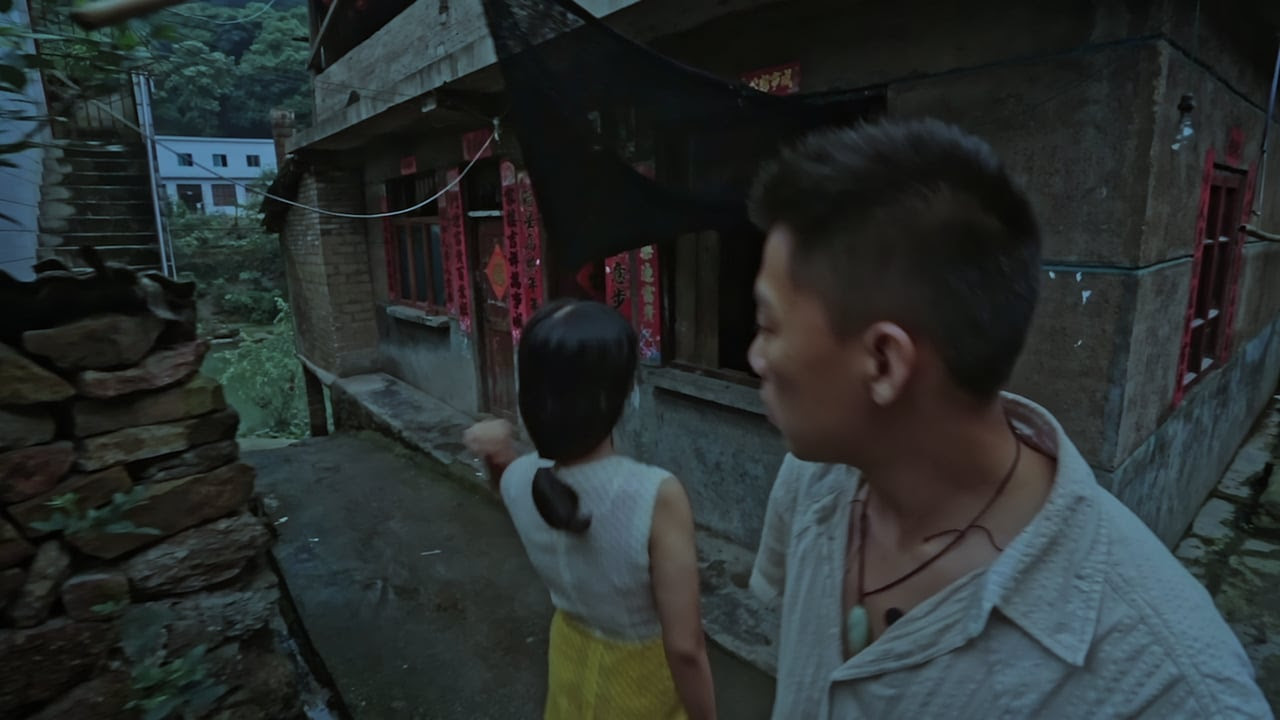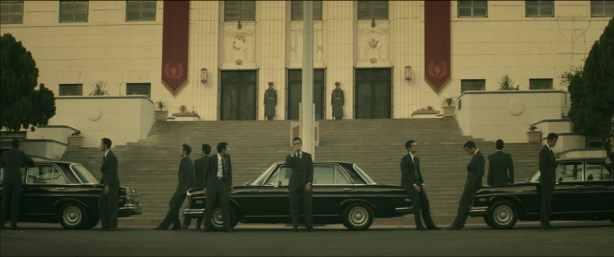New Directors/New Films 2016 – Critic’s Choice

Kurt Brokaw selects his favorites from the 45th edition of the fest (27 features, 10 shorts) at the Film Society of Lincoln Center and the Museum of Modern Art screening March 16th - 27th
New Directors/New Films introduces New York audiences to the work of emerging filmmakers from around the world. Throughout its rich history this festival has uncovered talents like Pedro Almódovar, Chantal Akerman, Hou Hsiao–hsien, Christopher Nolan, Laura Poitras, Spike Lee, and Kelly Reichardt.
Kaili Blues
(Gan Bi. 2015. China. 109 min.)
The 30-minute prologue before the opening title of Gan Bi’s debut feature isn’t very promising. Kaili, the heartland of China’s Miao and Dong ethnic minorities, is billed as “The Homeland of Music,” but there’s nary a tune coming out of this subtropical backwater dump that looks barely alive. People speak Mandarin when they speak at all.
Mountain streams thunder down past passenger trains that run inches away from residences piled high, and sneakers float in what looks suspiciously like a polluted river. The few old tv sets pick up one channel (which, significantly, is showing the opening credits to Kaili Blues), and the one visible boom box is busted. Memories of a local “wild man” persist. The local toughs all drive motorcycles. Half the year is Kaili’s rainy season. The village doctor, Chen Shen (Yongzhong Chen) is a weary ex-con and poet (his Roadside Picnic starts detailing his new sobriety) and his clinic partner Guang Lian (Zhao Daqing) observes gloomily that “Sick people just get sick all over again.” Director Bi’s cast looks forever stuck in a place “where neither the past, present or future can be found.”

Bi’s thin story appears hinged to the fate of Wei Wei (Luo Feiyang), a pleasant school-age boy who’s the son of the physician’s half-brother Crazy Face (Xie Lixun). Crazy Face runs the stand at what passes as a local fair where people shoot balloons with a rifle, and Chen suspects he’s trying to sell the boy. Other characters drift in, including a hairdresser (Liu Linyan) and a seamstress (Guo Yue). The pacing is slack, the cutting is pokey, the doctor’s volunteering to take on the boy’s care seems perfunctory. When someone asks the doc to sing, you laugh out loud because that looks like the last thing he’ll do.
This isn’t quite slow cinema, but it requires a degree of patience you may feel hard-pressed to grant. The film, like Dr. Chen’s village (and Dr. Chen himself), barely registers a pulse — they’re all in some ethnographic limbo. Or so Bi is adroitly leading you to believe. Immediately after the prologue, Kaili Blues starts coming to life. An inventive music track kicks in as Chen confronts Crazy Face in a rooftop pool room. We learn how prison hardened the doctor and how he’s offering to give his relative the house their mother bequeathed to him, in return for being able to care for Wei Wei. Crazy Face looks amenable.
Chen then sets out to uncover some local musicians who play lusheng bamboo pipes. At 57 minutes in, this looks like a fool’s errand of staggering proportions, but Gan Bi is now ready to spring his surprise. “The village unfolds like an opening fist,” intones the persistent voice-over poet, and so it does, the camera starts following Chen, continuously. First by motorcycle, then at a stop for a lunch of rice noodles, then (ducking through alleys and tiny urban passageways) picking up his laundry and visiting a shop that sells hot water for bathing. It will dawn on you after 13 minutes of Chen’s explorations that there hasn’t been a cut, and this is just the beginning of what’s going to join the rare handful of continuous takes you’ve marveled at, from Hitchcock’s reel-length scenes in Rope to Kubrick’s trench warfare in Paths of Glory to Welles’ opening credits in Touch of Evil, from the feature-length Russian Ark through the recent two hour-plus Victoria.
After 20 unbroken minutes Chen turns the momentum of this behind-the-scenes tour over to a young woman, who’s ferried across a river to “hear the concert” (yes, we’re now hearing an actual rock band doing its sound check), and next recrosses the river by a narrow pedestrian bridge, taking us into a barber shop where Chen is having a haircut. The doctor resumes his narrative and ties together more intimate subplots here. Then Bi’s camera continues carrying Chen and us with the amazing fluidity of those fancy cams that sweep over football fields and rock concerts. Kaili Blues swoops us into a teen rock show right in the middle of a muddy village street (three guitars, drums and vocal). The promise of a ‘homeland of music’ is launched at last.
Families of all ages are watching and listening in meek bewilderment, the band ain’t bad. Then the doctor takes over lead vocals on “Like Jasmine,” which you could call Bi’s grand finale, because Chen talk/sings a love song and then decides to move on, as the skies are darkening and rain is imminent. This concludes a dazzling 45-minute take of incredible originality and (for a first film) phenomenal planning. Bi adds his coda at the Zhenyuan Hotel, with the lusheng pipers strolling up a mountain path and accompanying his final poetic offering, a message he’s skillfully implanted in this euphorically alive culture.
“All memories are concealed in similar ways. Even nomads with instruments cannot express how close such gazes are to those of our ancestors.”
Thus speaks Kaili Blues.
Kaili Blues shows Mon. March 21st at 6:30pm at the Museum of Modern Art and Wed. March 23rd at 6:00pm at the Walter Reade Theater.
Concerning the Bodyguard
(Kasra Farahani. 2015. USA. 10 min.)
If more young filmmakers adapted short stories by famous writers, would more critics write about their shorts? Would more film-goers seek out these shorts, either at festivals or through the film’s producers? Would more of these shorts be used in film studies programs at major universities? Would this lead to intense educational discussions on how to make more shorts that would be worthy of major venues like ND/NF and Tribeca?

You note that all the sentences in the preceding paragraph are framed as questions to you, the reader. This is the format used by the acclaimed short story master, Donald Barthelme (1931-1989), in his inquiry on bodyguards, first published by New Yorker magazine in 1978. Barthelme’s story asks several hundred questions unique to bodyguards years before armed escorts became a 24/7 requirement for VIPs (and their families) in government, the arts, sports and today’s corporate life who travel extensively — or who travel at all. The best thriller in this year’s Rendez-vous with French Cinema is Disorder, Alice Winocaur’s uber-cool study of a bodyguard fresh out of combat in Afghanistan. In a perfect world, she and Kasra Farahani would figure out a way to get Concerning the Bodyguard attached to her feature release.
Farahani is an LA based artist and designer who’s worked in the art departments of bold-face names like Steven Spielberg, Michael Mann, J.J. Abrams and David Fincher. Farahani’s word-for-word replication of Barthalme’s deconstruction of these protectors-of-the-elite is a triumph of casting, but not in the usual sense of the two actors who play the lead bodyguard (Junes Zahdi) and the “Leader of a near eastern country” he’s hired to protect (Simon Sion Ebrahimi). They’re both fine, but the star of the show is the voice-over.
Farahani’s narrator, who’ll send chills up your spine because he brings a world of experience to all of Barthelme’s questions, was for years probably the best-protected author in the world — Salmon Rushdie. His fourth novel, The Satanic Verses, was published by Viking in 1988. Its premise of a jet torn apart in midair by a terrorist attack — sending two Indian actors falling to earth, where they’re transformed into symbols of good and evil, one of whom commits suicide, instantly caught the world’s attention.
The Satanic Verses was banned in India and so angered Iran’s leader, Ayatollah Khomeini, that he issued a fatwa calling for Rushdie’s execution. The author, raised as a Muslim, was critical of Muhammed, and was sentenced as an apostate. For the next decade Rushdie changed residences often, staying only in safe houses with 24-hour security close to his bedside. Though Iran’s government withdrew the fatwa in 1998, the author’s insider knowledge of bodyguards is as good as it gets, and you can detect the acute anxiety in many of his line readings. It’s a stellar performance.
“Is the bodyguard sufficiently well-paid? Is the Citroen armored? Is the Mercedes armored? Has the bodyguard acquired a fondness for the principal? Is there mutual respect? Is there mutual contempt? Are there, in addition to the bodyguard’s agreed-upon compensation, tips? Of what size? On what occasions? Is the retirement age for bodyguards calculated as it is for other citizens? Is there a pension? Is the bodyguard frightened by young women of good family? Young women of good family whose handbags contain God knows what?”
You get the idea. Farahani’s scenes, matching the prose, are elegantly staged and filmed — there isn’t a moment shot on the cuff. And when the questions veer into fantasy, Farahani’s skills as an art director shine through.

“Are the streets full of stilt-walkers? Stilt-walkers weaving ten feet above the crowd in great papier-mâché bird heads, black and red costumes, whipping thirty feet of colored cloth above the heads of the crowd, miming the rape of a young female personage symbolizing his country?”
All this is strikingly animated. Farahani delivers Barthalme/Rushdie’s probing meditation with an aesthetic all young filmmakers can learn from. Are you taking notes?
Concerning the Bodyguard shows (with the feature, The Apostate) Thurs. March 17th at 6:30pm at the Walter Reade Theater, and Fri. March 18th at 9:30pm at MoMA.
Happy Hour
(Ryusuke Hamaguchi. 2015. Japan. 317 min.)
At 10 minutes, Concerning the Bodyguard is the shortest film and the one short attached to the main slate. At 317 minutes, Happy Hour is not only the longest feature film, but one of the richest pleasures of any recent ND/NF fest. Both Farahani and Hamaguchi demonstrate that length is no measure of superior storytelling.
No question, unusually long movies sorely test a social media era in which more viewers’ attention spans are fractured beyond repair. And so it’s a joy to report that the lives and loves of four contemporary Kobe women, all nearing 40 and starting their friendship at a movement workshop (called, as instructor Ukai, played by Shibata Shuhai, explains while balancing a chair on its edge, ‘finding your center’), can transmit enough heat and chemistry to hold you well over five hours. The experience is not unlike being caught up in a 700-page novel that steals away your nights, or a four-act opera that captivates you through an afternoon. But the artistry has to be powerful.

The “happy hour” of the title is the first hour of the film, played in what feels like real time, in which the women get acquainted in class, tackling interdependent tasks. It’s a unisex group and everyone is initially shy about touching bellies and sitting back-to-back, pushing each other’s shoulders up into standing positions. The women then linger for a meal with their teacher and his friends, discussing their workout, and we’re conscious how extraordinarily measured and polite “everyday” Japanese comport themselves.
The four women include Akari (Tanaka Sachi), a statuesque and demanding nurse who’s divorced a cheating husband; Fumi (Mihara Maiko), who’s manages a gallery and is married to a struggling book editor; Sakurako (Kikuchi Hazuki) a traditional married woman saddled with an ultra-conservative husband, a sexually active teen son, plus an amusingly keen mother-in-law; and Jun (Kawamura Kira), a pregnant kitchen assistant going into a divorce hearing with a remote and unloving husband, Kohei (Zahana Yoshitaka)—a lengthy hearing which all the women will attend, and an important influence in stirring their own uneasy lives. Remarkably, all four actresses have limited screen experience yet won a collective award as Best Female Actor at Locarno.
Director Hamaguchi takes the next two hours spinning out their individual backstories, and begins cross-cutting their conflicted lifestyles with more relaxed and confident times together—from a cable car visit to high above Kobe to the Arima Onsen hot spring resorts, where the women start the process of baring their deepest frustrations and longings to each other. In one memorable scene, we follow along on a visit to the parents of the girl who Sakuraku’s son has gotten pregnant, with the requisite envelope of money offered in hushed rectitude as an apology to the offended family.
In this movie people think before speaking and they talk in whole sentences. They don’t interrupt each other. Nuances register. Occasionally there’s a direct address to camera. This isn’t for a minute ‘slow cinema,’ with its deliberate, numbing solitude that can be like watching wet paint dry. All four women are quite alive, quietly eager to share their various setbacks and frustrations with someone, and when Jun leaves the group, they intuit her husband isn’t going to let her go easily, or at all.
All this acts as prelude to Happy Hour’s final two hours, which are styled around a short-story reading by a college student, Yuzuki Nose (Reina Shiihashi), who’ll be introduced by Fumi’s husband. The story is closer to a long novella, meticulously detailing her body’s response to the kind of hot springs visited by the female quartet. Her reading occupies over an hour including a followup Q&A, which is led by a surprise last minute replacement, Kohei, Jun’s stern husband who’s a molecular scientist.
What’s a scientist doing leading a literary Q&A? To everyone’s amazement, Kohei’s gentle interpretation and thoughtful praise for the student and her work are immensely moving. This is Happy Hour’s centerpiece hour, and the cumulative effect of the girl’s slow, plaintive but earnest reading — followed by Kohei’s wise and winning adulation — is something of a tiny movie miracle. The director has won you heart and soul, which in the movies is an accomplishment so rare, you want to see a bell jar lowered protectively over Miss Shiihashi’s character, to preserve her youthful innocence and integrity through adulthood.
In the last half hour or so, Hamaguchi shifts gears and posits a number of quick, decisive events that change the direction of the four lead characters. They don’t come as shocks but you feel you’re being pulled away from a cocoon-like comfort zone that’s become your Shangri-La. Akari, for example, the lonely nurse hungry for love, finds it in (of all places) the mosh pit of a disco where the sound is at sonic stun, as the workshop leader Ukai admires her body being airborne. The director is bringing closure by suggesting new find-your-center moments, and they are, to be sure, marvels of invention.
Happy Hour shows Sat. March 26th at 1:00pm at MoMA, and Sun. March 27th at 1:00 at the Walter Reade theater.
Weiner
(Josh Kriegman & Elyse Steinberg. 2015. USA. 100 min.)

“The name of a man is a numbing blow from which he never recovers,” is the cutesy quote by Marshall McLuhan onscreen that launches this scalding, all-stops-out doc. It gets a knowing laugh from the audience, but it’s the wrong quote. “Hell hath no fury like a woman scorned,” by the English poet William Cosgrove, would have been a more accurate preview and summation of what’s ahead.
Weiner would sell more tickets if its title was Huma, or maybe Anthony and Huma, or—bingo!— Carlos and Huma! The disgraced Anthony Weiner, a New York City politico caught sexting a parade of woman, who ran for mayor and finished dead last, with less than five percent of the popular vote, is a footnote to history. His sexting moniker, “Carlos Danger,” will probably haunt him to his grave.
But his wife, Huma Abedin, is the closest personal advisor to democratic front-runner Hillary Clinton, who may become our next president. At Huma and Anthony’s 2010 wedding, it was Mrs. Clinton who said “I have one daughter. But if I had a second daughter, it would be Huma.”
Huma’s the one you watch through this painful, up-close-and-oh-so-personal train wreck of a marriage, and downfall of a scoundrel. She’s there in scene after scene wearing alternating faces of disbelief, anger, fear, disgust, frustration, angst and exhaustion. You watch her intently because she looks like she’s going into a death spiral or at least an imminent collapse, and the issue that keeps coming to mind isn’t why she’s staying with this pathological tin can. The question is why she’s permitting a documentary filmmaking team to record every single second of her unconcealed suffering.
Weiner goes way deeper than any press coverage you’ve read or watched on the fall, brief rise (after many mea culpas), and catastrophic fall (after he was caught again in his cybersex world) of the Brooklyn-born, seven-term congressman. It’s surely the most intimate feature-length doc of a political career in free-fall that you’ve ever witnessed. You can’t take your eyes off the screen, even when everything Wiener says and does is a camera-conscious performance. As his career is disintegrating around him, he’s Carlos Danger to the core, parrying and thrusting against “all the slings and arrows of outrageous (mis)fortune” that are pinning him against the wall like Toshiro Mifune in Throne of Blood.
His communications director and spokeswoman, Barbara Morgan, is also tarred and feathered by Weiner. Morgan is a savvy, experienced former exec in the NYC and state of New Jersey departments of education. She starts this doc looking sleek and tanned, the very essence of a buttoned-up communications exec—and by the end, she’s pale, wan, weary and listless. Her makeup’s not right and she looks shell shocked as she listens to her boss prattling and ranting on. We think, she’s the communications head and she can’t turn the cameras off? Why would either Morgan or Abedin trust co-director Josh Kriegman to begin with, when back in 2005-06 he was on Anthony Weiner’s payroll as his chief of staff in a district office?
Huma never reigns her husband in. She stands through it all as the eternally disgraced partner, but at least she has the good sense to be out of town as one of his prominent sexting partners, a buxom lass named Sydney Leathers, is desperately trying to push her way into his concession speech, perhaps to (as she later tweeted) ask for “a key to the city for protecting all of you from Carlos Danger.”
One can only wonder how Mrs. Clinton’s political opponents will use this panorama of pain against her candidacy. Thomas Friedman, writing in The New York Times March 9th, predicts Donald Trump “will indeed go after Hillary Clinton in ways you never heard before and that will delight and bring back a lot of disaffected Republicans whose hatred of Hillary knows no bounds.” Kriegman and Steinberg’s Weiner roast is chock full of singular shameful moments — starting with Huma’s questionable judgement upfront in committing to be filmed on her husband’s death march — that will be intensely studied by The Donald’s advisers. They probably are already.
Weiner shows Friday, March 25th at 6:00pm at MoMA, and Saturday, March 26th at 4:00pm at the Walter Reade theater.
This concludes critic’s choices. Watch for Brokaw’s picks at the Tribeca film festival, April 13th – 24th.
Regions: New York City
